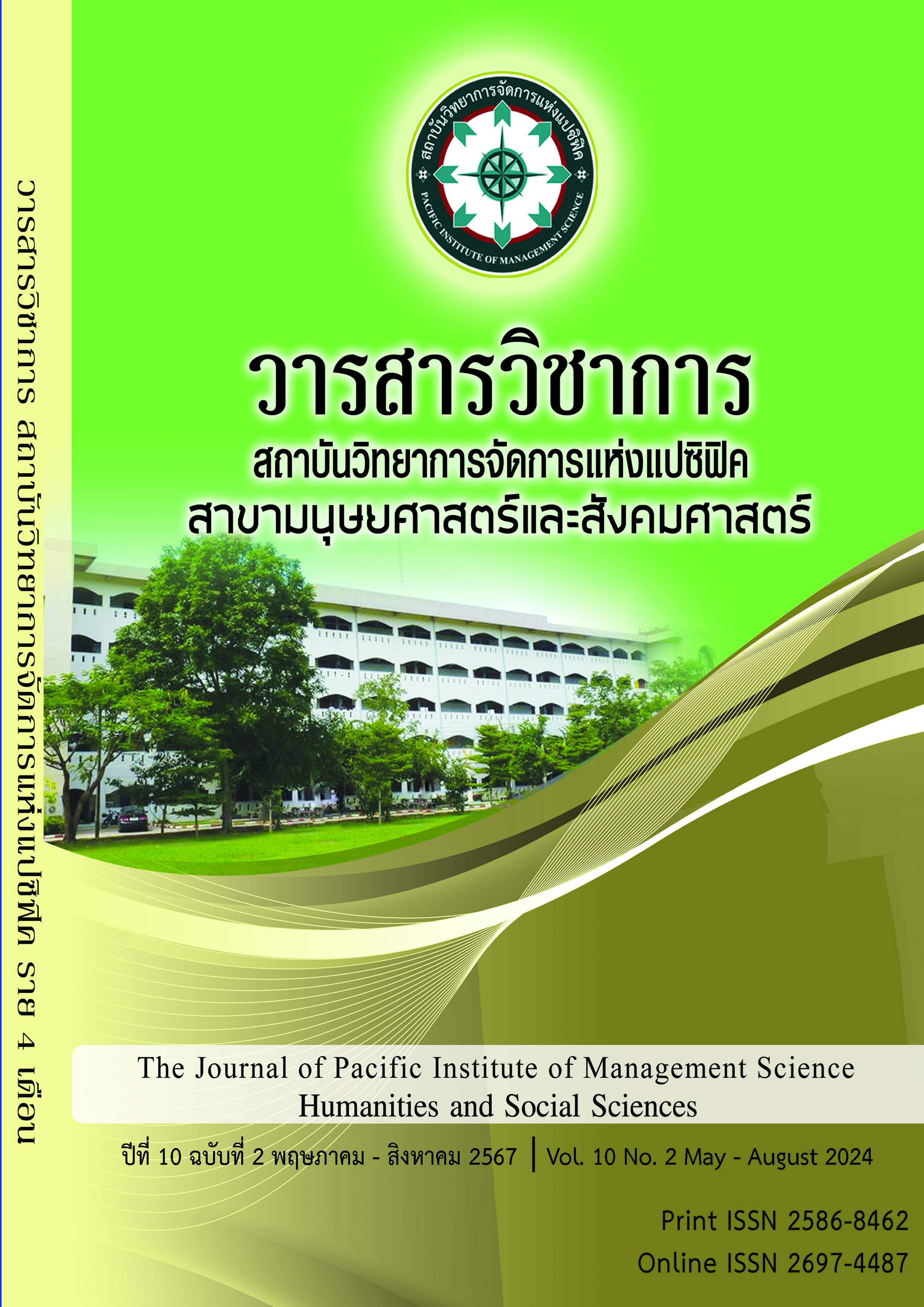The Organizational Commitment of Teachers and Educational Personnel at Chingkhan Technical College under The Office of The Vocational Education Commission Phayao
Keywords:
Commitment to the organization, teachers, personnel, Chiang Kham TechnicalAbstract
The purposes of this research were: 1) To study the level of attachment of teachers and educational personnel in Chiang Kham Technical College Phayao Province and 2) To compare personal factors and organizational commitment of teachers and educational personnel in Chiang Kham Technical College. Classified by gender, education level, and the duration of work, the population used in the research There are 65 teachers and personnel using questionnaires as a tool for collecting data. Statistics used in data analysis include percentages, averages, standard deviations, t-test values, and F-test values, or one-way analysis of variance (One-Way ANOVA).
The research results found that: The organizational commitment of teachers and personnel at Chiang Kham Technical College, Phayao Province is at a high level. When considering each aspect, it was found that loyalty to the organization Affects organizational commitment at the highest level. When considering each aspect, it was found that the aspect of loyalty to the organization Affects organizational engagement at the highest level. Next is confidence and acceptance of values objectives and goals at the highest level. Remaining with the organization at a high level. Persistence with the organization at a high level. Participation is one with the organization. at a high level (µ = 4.30) and the aspect of sacrifice for the organization is at a high level (µ =4.29). The results of comparing the organizational commitment of teachers and personnel at Chiang Kham Technical College, Phayao Province, classified by gender as a whole and considered on a side-by-side basis, are not different, classified by gender, length of service, and level of education. They were significantly different at the 0.05 level.
References
ชนัญชิดา เกษโกมล. (2562) การศึกษาผลของความผูกพันต่อองค์กรตามหลักสังคหวัตถุ 4 ของบุคลากร สำนักงานคณะกรรมการส่งเสริมสวัสดิการและสวัสดิภาพครู และบุคลากรทางการศึกษา. วิทยานิพนธ์ปริญญาครุศาสตรมหาบัณฑิต สาขาวิชาพุทธบริหารการศึกษา บัณฑิตวิทยาลัยมหาวิทยาลัยมหาจุฬาลงกรณราชวิทยาลัย.
เทียนศรี บางม่วงงาม. (2562). ปัจจัยที่มีความสัมพันธ์ต่อความผูกพันต่อองค์การของบุคคลากรที่ผ่านโครงการอบรมวิศวกรใหม่ กรณีศึกษา: บริษัทเอกชนแห่งหนึ่งในเขตกรุงเทพมหานคร. สารนิพนธ์หลักสูตรศิลปศาสตรมหาบัณฑิต สาขาการบริหารจัดการ คณะศิลปะศาสตร์ มหาวิทยาลัยเกริก.
ธนวินท์ ทับสวัสดิ์ (2562). ความผูกพันต่อองค์กรของเจ้าหน้าที่ศูนย์สนับสนุนและบริการอุปกรณ์ไปรษณีย์ บริษัท ไปรษณีย์ไทย จำกัด. ปริญญาบริหารธุรกิจมหาบัณฑิตคณะบริหารธุรกิจ มหาวิทยาลัยเกริก.
ภัสนิชา คล้ายสมาน. (2551). ปัจจัยที่เกี่ยวข้องกับความพึงพอใจในงาน ความผูกพันต่อองค์กร และ
ทัศนคติของพนักงานการไฟฟ้าฝ่ายผลิตแห่งประเทศไทย. หลักสูตรบริหารธุรกิจมหาบัณฑิต Modern Leaders (Weekend Program) มหาวิทยาลัยรามคำแหง.
ภรณี (กีร์ติบุตร) มหานนท์. (2529). การประเมินประสิทธิผลขององค์การ. กรุงเทพฯ: สำนักพิมพ์โอเดียนสโตร์.
Becker, S., & Neuhauser, D. (1975). The Efficient Organization. Publisher: Elsevier.
Grusky, Oscar. (1966). Career Mobility and Organizational Commitment. Administrative Science Quarterly 10(4): 488-503
Lawrence G. Hrebiniak & Joseph A. Alutto. (1972). Personal and Role-Related Factors in the Development of Organizational Commitment. Administrative Science Quarterly, 17(4): 555-573.
Mowday, R. T., et al.(1982). Employee-Organization Linkages: The Psychology of Commitment, Absenteeism and Turnover. New York: Academic Press.
Downloads
Published
Issue
Section
License
Copyright (c) 2024 Pacific Institute of Management Science

This work is licensed under a Creative Commons Attribution-NonCommercial-NoDerivatives 4.0 International License.
บทความที่ได้รับการตีพิมพ์เป็นลิขสิทธิ์ของ สถาบันวิทยาการจัดการแห่งแปซิฟิค
ข้อความที่ปรากฏในบทความแต่ละเรื่องในวารสารวิชาการเล่มนี้เป็นความคิดเห็นส่วนตัวของผู้เขียนแต่ละท่านไม่เกี่ยวข้องกับสถาบันวิทยาการจัดการแห่งแปซิฟิค และคณาจารย์ท่านอื่นๆในสถาบันฯ แต่อย่างใด ความรับผิดชอบองค์ประกอบทั้งหมดของบทความแต่ละเรื่องเป็นของผู้เขียนแต่ละท่าน หากมีความผิดพลาดใดๆ ผู้เขียนแต่ละท่านจะรับผิดชอบบทความของตนเองแต่ผู้เดียว







